7 Essential Productivity Applications for Linux Users
Written on
Chapter 1: Introduction to Productivity on Linux
While I generally favor macOS for productivity tasks, the increasing congestion on the roads has led me to spend more time in the office late into the afternoon, focusing on coding and writing. To facilitate this, I need applications that help me track and manage tasks, plan work shifts, and ultimately get things accomplished. Given that my work laptop runs on Linux, it’s crucial that these tools are cross-platform and free to use.
From the initial list of applications, I personally utilize four, but I’ve also included a few extra options you might find valuable—so feel free to explore them all. If you're short on time, you can skip the detailed descriptions under each app.
Lunatask
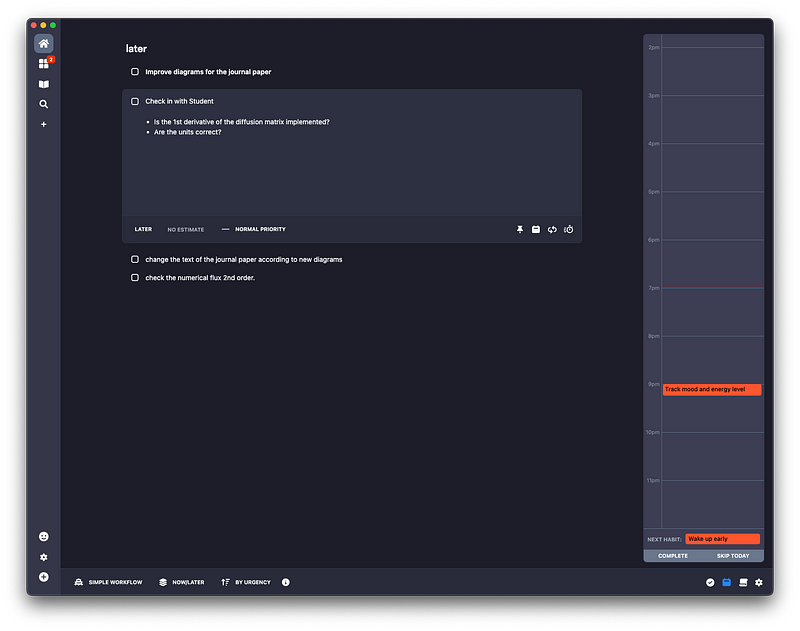
Lunatask appears to be a straightforward task-management tool at first, yet it offers a wealth of features. Here’s a quick overview of its capabilities:
- Create tasks with detailed notes
- Supports Markdown for formatting
- Micro-schedule your day
- Track your mood
- Build and monitor new habits
- Maintain a daily journal
- Organize notes into notebooks and areas
The features listed illustrate that Lunatask is much more than just a task manager. You can expand tasks to include notes, aiding in your planning by clarifying both what you want to accomplish and how to approach it. A timer can also be set for tasks, ranging from 15 minutes to an hour, with reminders on the timeline for due tasks.
Additionally, Lunatask allows you to track your mood and introduce or monitor habits. If journaling is part of your routine, you can do that within the app as well. Note-taking is not limited to tasks; there’s a dedicated section for it where you can create notebooks for better organization. You can even create distinct areas for various hobbies or work projects, making it a great way to manage different aspects of your life.
This app is cross-platform and available on Linux, Windows, and macOS, with an iOS version currently in beta.
The first video offers insights into alternative productivity apps available on Linux, providing an overview of various options that could enhance your workflow.
Apostrophe
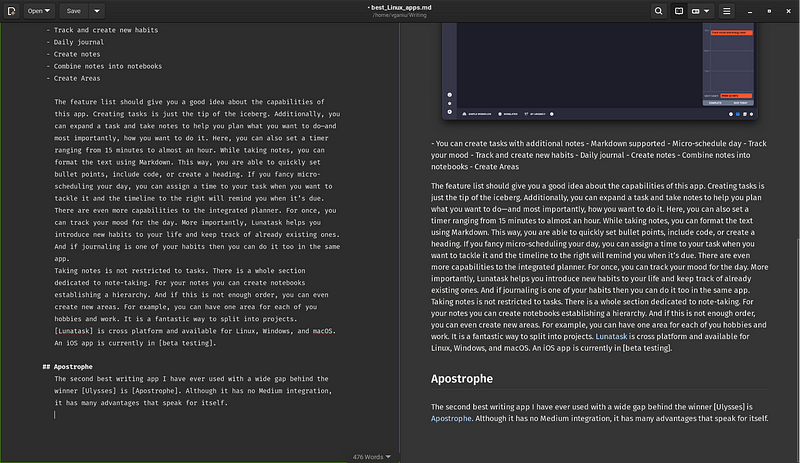
My second favorite writing app, trailing behind Ulysses, is Apostrophe. While it lacks Medium integration, it has several features that set it apart:
- Markdown editor
- Two preview modes (full screen and split screen)
- Displays word, phrase, and character counts
- Focus mode and Hemingway mode
- Several themes (dark, light, sepia)
- Spell checking and document statistics
- Export options: PDF, Word/LibreOffice, LaTeX, HTML presentations
For a deeper dive into Apostrophe, check out my blog after this one. You can install it via Flatpak.
PDF Mod
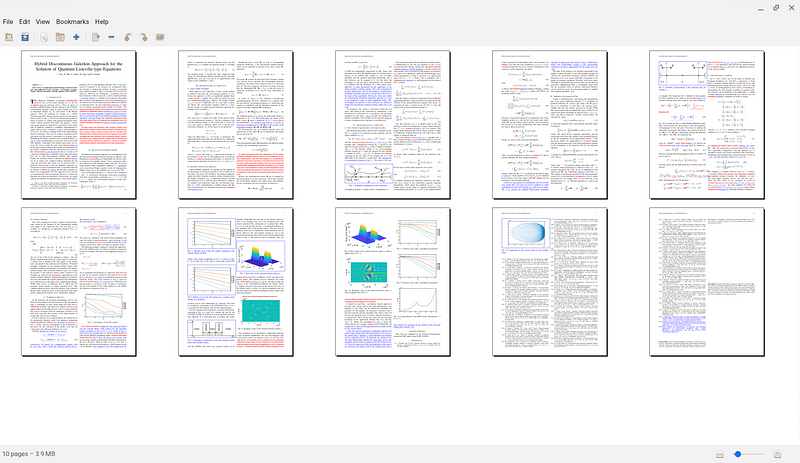
PDF Mod is a compact yet highly functional tool for basic PDF editing. It allows you to easily delete or add pages to PDF documents—a feature that becomes invaluable when preparing applications in PDF format. Unlike macOS, where this can be done effortlessly, Linux users will appreciate the simplicity of PDF Mod.
To install PDF Mod, simply run the following command in your terminal:
sudo apt install pdfmod
Referencer
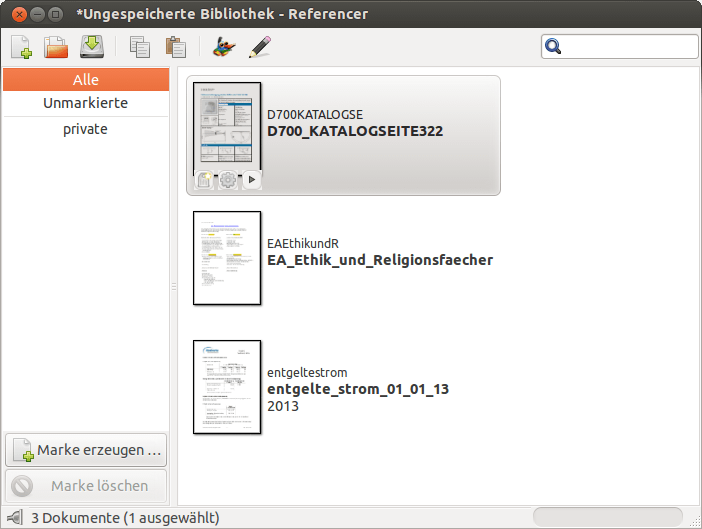
If you frequently work with LaTeX for academic papers, Referencer is a must-have tool. It allows you to create links to existing files, gathering all your references in an XML file that includes essential properties and descriptors. This makes it easy to compile bibliographies for scientific papers or theses.
XMind
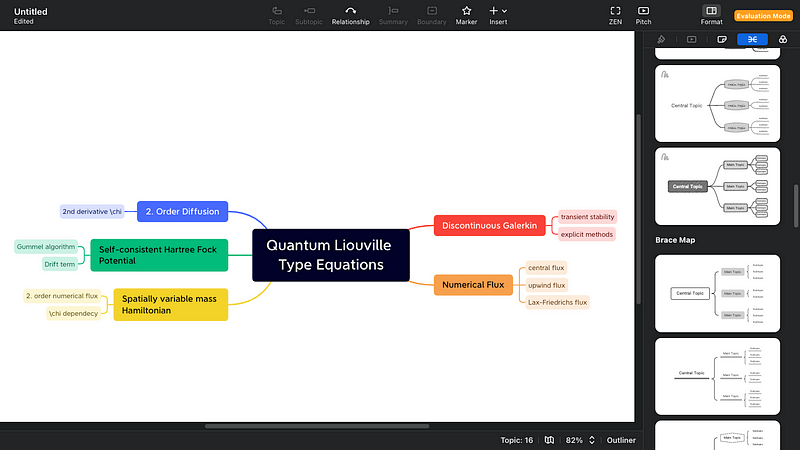
XMind is an exceptional application for creating engaging mind maps and flowcharts. With its user-friendly interface, you can quickly develop visual representations for your papers or presentations. Although I recently discovered this tool and couldn’t use it for my SISPAD paper, its clean layout allows for easy chart creation. However, the pricing might be a downside, as a six-month license costs $39.99 or $59.99 for a year. The free 'Evaluation Mode' includes nearly all premium features and can be used indefinitely. For those seeking a completely free alternative, Kivio exists, although its outdated interface may be a drawback.
Hubstaff
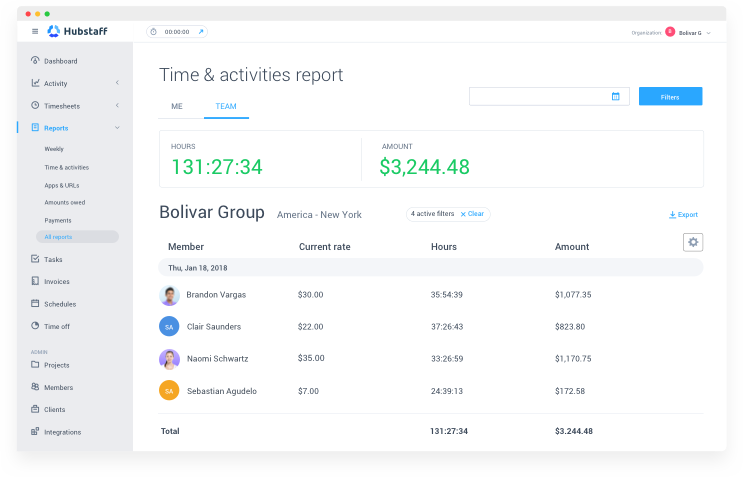
Hubstaff serves as a time-tracking and productivity monitoring tool, particularly beneficial for CEOs and team leaders. It enables users to track employee hours and automatically generate payrolls integrated with over 30 payroll solutions. Additionally, it can create reports from tracked time, making it an excellent project management tool.
Kexi
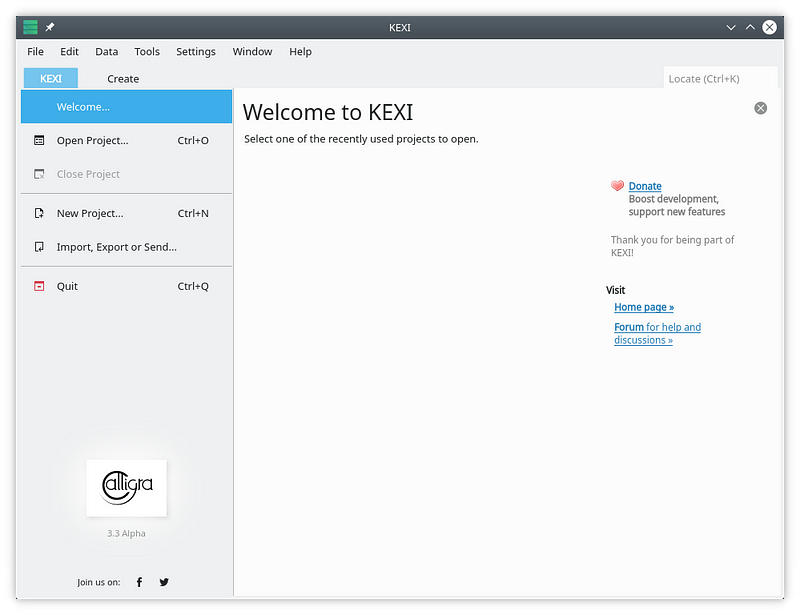
Kexi, known as the 'Microsoft Access for Linux,' is ideal for those who work extensively with databases. It allows users to open and manage datasets effectively, focusing on SQLite, making it an excellent choice for data scientists using Linux.
In conclusion, Linux is a fantastic operating system, and I hope these applications enhance your productivity. Please share in the comments if you currently use any of these tools or if there are others you can’t live without.
Chapter 2: Further Insights on Productivity Apps
The second video discusses the top five productivity applications for Linux as of mid-2022, offering a comprehensive overview that could guide your choices for enhancing your workflow.
Thank you for reading! If you found this information helpful, I would appreciate your support and encourage you to follow me for more content. If you want to receive my weekly newsletter, "The Creative Engineer," be sure to subscribe. For any feedback or inquiries, feel free to reach out via Twitter or email.